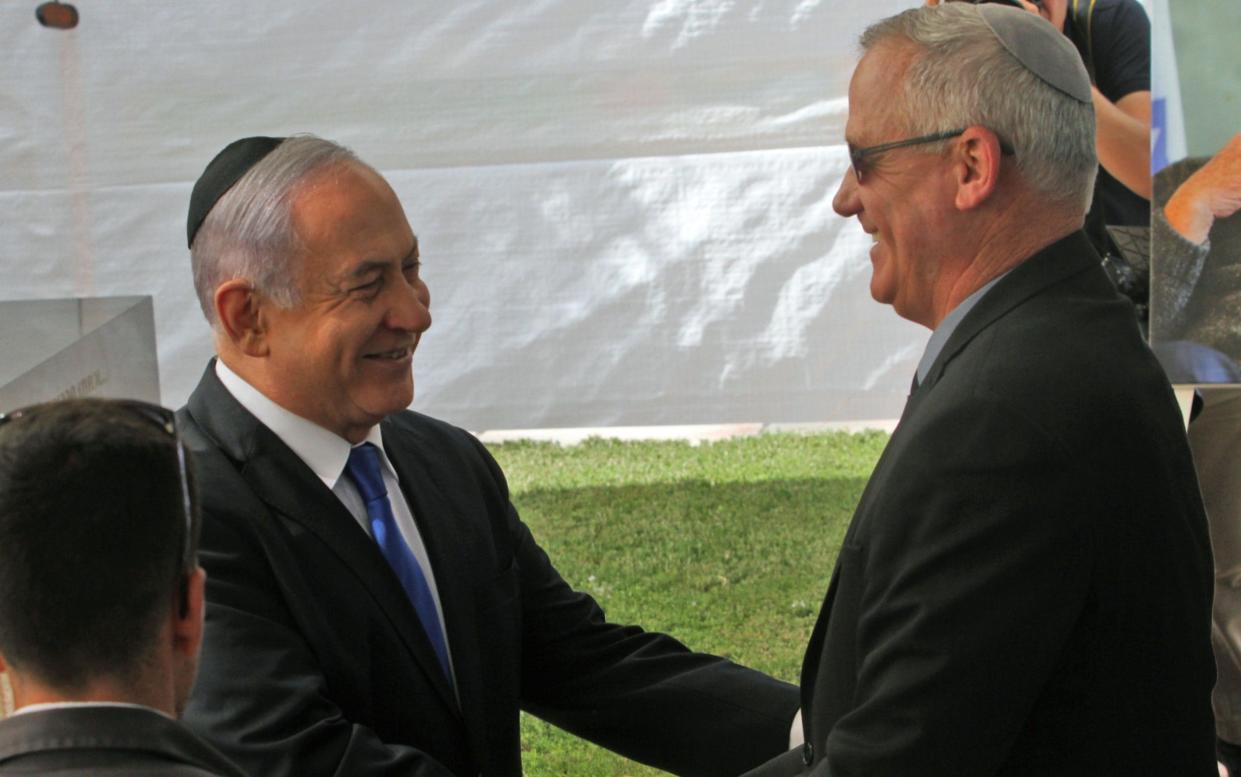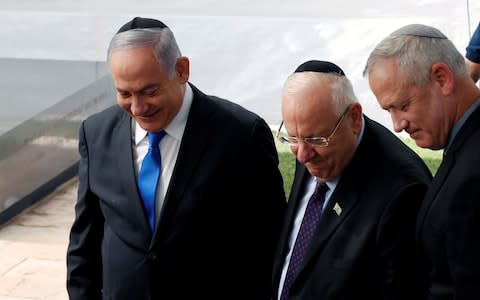Netanyahu calls for Israeli unity government with rival Benny Gantz

Benjamin Netanyahu tried to seize the initiative in negotiations following Israel’s stalemated elections on Thursday by calling on his rival Benny Gantz to meet as early as today to begin talks on forming a unity government.
The Israeli prime minister released a video in which he implored his opponent by his first name to cooperate. “Benny, it is on us to form a broad unity government. Today. The nation expects us, both of us, to accept responsibility and work together,” he said.
However, it appeared Mr Netanyahu’s offer of a unity government was actually an offer for Mr Gantz’s centrist Blue & White to join a coalition of made up of Right-wing and religious parties already aligned with the prime minister's Likud party.
The prime minister's party has signed an agreement with two ultra-Orthodox parties and one far-Right party, stating that they will stick together in negotiations and only join a coalition if all four parties are included.
That is a far cry from the secular unity government Mr Gantz campaigned for during the election. He said then that he would join forces with Likud but that Mr Netanyahu, who is facing criminal corruption charges, must first resign.

Mr Gantz also said that the core of the coalition must be secular parties and that Mr Netanyahu’s religious allies would only be allowed to join the government if they agreed to abide by secular policies.
There was no immediate comment from Blue & White on Thursday to Mr Netanyahu’s offer.
Mr Gantz and Mr Netanyahu did meet briefly in person on Thursday at a memorial service for Shimon Peres, the late Israeli president.
They shook hands in front of the cameras at the urging of Israel’s current president, Reuven Rivlin, who may play a major role in deciding who gets the first chance to form a government. Mr Rivlin hailed Mr Netanyahu's offer of a unity government, calling it "an important call".
Mr Netanyahu smiled widely but Mr Gantz appeared less enthusiastic as the three men clasped hands at Mount Herzl, Israel’s national ceremony.
With 97 per cent of the vote counted from Tuesday’s election, Mr Gantz’s Blue & White appeared to have won 33 seats, while Mr Netanyahu’s Likud was on 31. Neither side had a clear path to forming a 61-seat majority government.

Overall, Mr Netanyahu and his Right-wing and ultra-Orthodox Jewish allies had won 55 seats. Blue & White and the Left-wing parties plus the Joint List, which represents Israel’s Arab minority, had 57 seats.
Avigdor Lieberman, Mr Netanyahu’s renegade former defence minister, appeared to hold the balance of power in the divided parliament with eight seats for his secular nationalist Yisrael Beiteinu.
Mr Lieberman has been coy about his intentions so far. He has called for a secular unity government on the same lines as Mr Gantz but he has also worked with Mr Netanyahu several times in the past.

